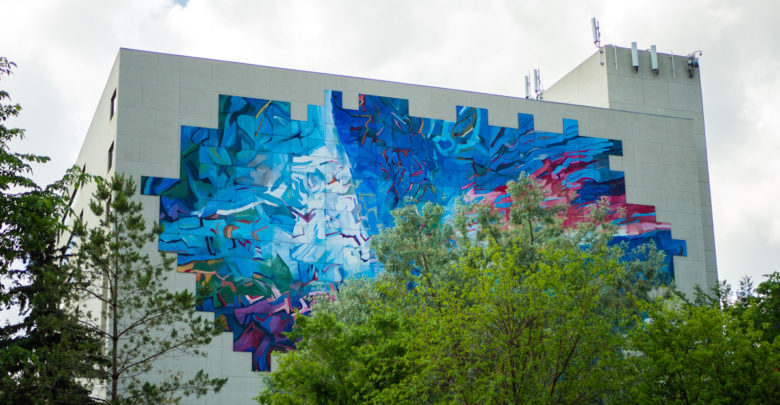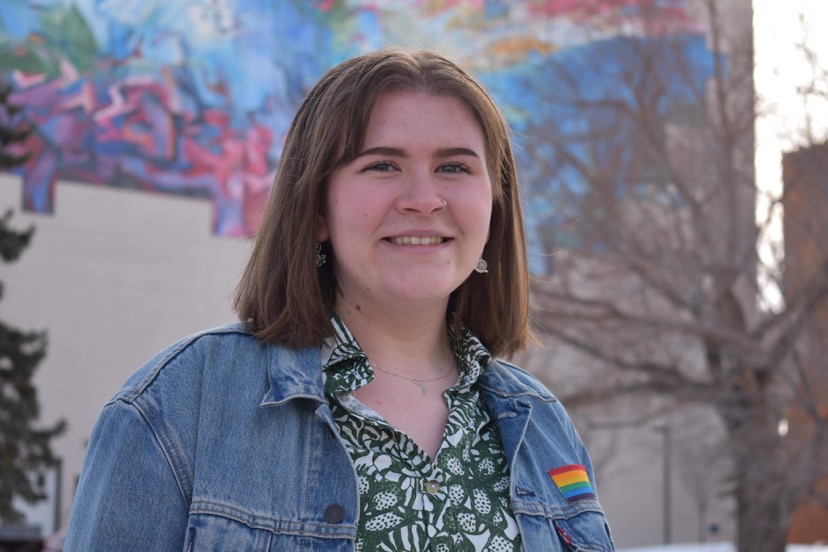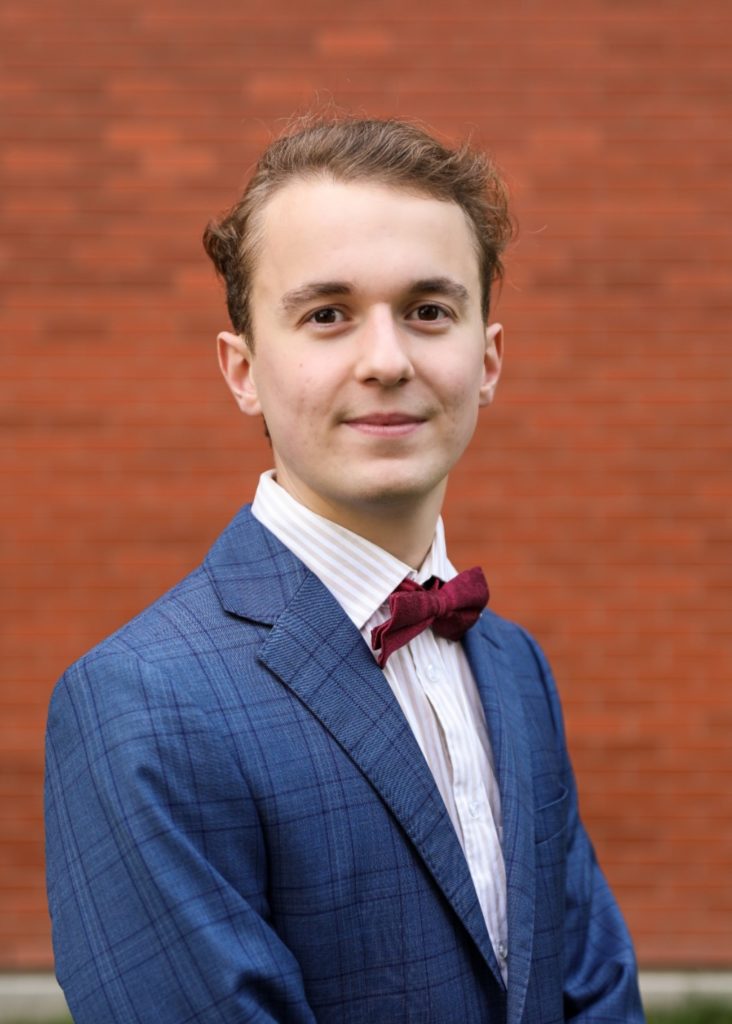SU Elections 2021 Q&A: Faculty of Education Students’ Council and GFC candidates
Here are three of the nine candidates running to represent the faculty of education on Students' Council and GFC.
 Helen Zhang
Helen ZhangThis article is part two of a seven-part series.
Although the election for Students’ Union executives is over, it’s now time to for students to vote for Students’ Council and General Faculties Council (GFC) representatives.
On March 17 and 18, undergraduate students will be voting for both the Students’ Council councillors and GFC representatives for their respective faculties.
Students’ Council oversees the Students’ Union in terms of its policies, financials, and mandate. It consists of 40 councillors.
GFC is the highest academic decision making body at the university. Out of its 159 members, there are around 40 undergraduate representatives.
To help students get to know the candidates, The Gateway interviewed them to learn more about how they would represent students and what issues they hope to address in these roles.
Responses have been edited for brevity and clarity.
Faculty of Education Candidates
The Gateway reached out to all candidates, but only the following participated. See a full list of candidates here.
- Avery Teo, a fourth-year secondary education student — running for Students’ Council.

- Rowan Morris, a second-year elementary education student — running for Students’ Council and GFC.

- Devin Doherty, a second-year education student — running for Students’ Council.

Why are you running for Students’ Council/ GFC?
Avery Teo: Throughout my time at the U of A, I’ve had the opportunity to volunteer and work in various capacities within the faculty of education and the Students’ Union. I’ve seen great things over the years, but I’ve also personally seen and heard from other education students and recent alumni where the Students’ Union is falling short. The importance of raising these issues and directly contributing to a solution is what inspired me to run. From my experiences, I feel that I can bring a new lens to council that previous councillors hadn’t brought to the role. With experience with events, student services and student life as a whole, we can accomplish new goals for Students’ Council and the Students’ Union, ultimately making change for the better when it comes to the student experience.
Rowan Morris: I remember being a kid and never really being good at anything. I didn’t have enough rhythm for dance, I didn’t have enough coordination for sports, and I didn’t have enough patience for art. When I was 12 years old I tried competitive public speaking for the first time and changed my life. I realized I did have something I was good at — using my voice. In 2015 I went to leadership camp over the summer and realized that I can use my voice for more than just debate club and hosting school assemblies and I began to nurture the activist within me. Throughout high school I continued using my voice for good, organizing walkouts, registering people to vote, challenging my administration, and starting my own charity for LGBTQ+ youth. When the opportunity to run for GFC and Students’ Council came up, how could I say no? This is what I’m good at! Now, more than ever, the faculty of education needs a strong voice to defend our needs. I am looking forward to being that strong voice.
Devin Doherty: I am running for re-election because I want to continue providing representation for the faculty of Education. I also want to combat the raising on any tuition fees.
Can you explain your platform concisely?
Teo: Introductory Field Experience and Advanced Field Experience (IFX/AFX) students often feel the most disconnected from their Students’ Union. Most of their time is spent off-campus and being in their field experiences, they often cannot benefit from the services offered by the Students’ Union. My plan would be to develop a framework to better allow students on work placements to still find value in their Studnets’ Union. [I would do this] through expanded access to Students’ Union services and financial support such as grants, bursaries, and employment opportunities that allow education students to utilize their teaching experiences while also acknowledging the need for flexibility with scheduling.
I want to improve the relationship between Students’ Council, the faculty association, and education students. Students already find challenges with accessing Students’ Council and what councillors and executives accomplish during their terms. The faculty association is also faced with the challenge of not being given agency by Students’ Council and is rather left as an afterthought, especially when it comes to decisions and questions that affect the student experience. Improving student life should not be limited to the ideas of elected officials, rather it should be a collaborative effort between all student leaders and the students as a whole, so they feel that they have a voice and agency during their time at the U of A.
Morris: I am looking to work with education students to hear how the Students’ Union can work for them. I want to reform policy so that what we are learning is relevant to the classroom. Outdated curriculum and overpriced tuition are not a good combination. I want to combat menstrual poverty by working to implement accessible hygiene products in all education buildings, and in public hallways, not just women’s washrooms. I also want to look into community fridges around campus because if COVID-19 has taught us anything it’s that insecurity comes out of nowhere— but so does community. While working on Students’ Council committees, I will be focusing on how to elevate marginalized voices on campus and in teaching.
Doherty: Firstly, I will fight against raising student fees, especially during the duration of the pandemic. Given the fact that our tuition is expected to go up at least seven per cent, I believe the union should push against any other fee increases. Secondly, I will fight for further equity and equality on campus, to ensure everyone is respected. Thirdly, I will fight to protect jobs on campus. During my short time on the union, I voted to provide more funding for student organizations’ and businesses on campus, in order to prevent the lay off of many students who are still working on campus during the pandemic.
Fighting against raising student fees, I believe a way I can promote this is by gathering signatures from education students who are against raising fees. That way I can use that petition as evidence that many people are against the fees. I could also rally with other faculties and get similar petitions signed from other faculties. That would also promote a level of transparency between myself and the students within the faculty. I could also create an official or unofficial caucus within the union of councilors who agree with me (which is most of them) that raising fees is not an option. That way we can put more pressure on the board of governors.
For protecting jobs on campus; I believe the union made the right decision to allocate more funding for businesses and student organizations on campus. I would support allocating more resources to protect these organizations. I would also advocate within the union to have more vocal advocacy from the union to support these businesses and organizations. Essentially to get the word out within the student body that these businesses and organizations are suffering and need support from the university. That would thus put further pressure on the university to not slash their budgets.
For Students’ Council candidates: what is the biggest issue you see facing the Students’ Union and how would you want it addressed?
Teo: Our biggest issue will be the effect of the provincial budget cuts and how that may translate to the short and long-term operations of the Students’ Union. The Students’ Union offers such diverse programming to cater to various student needs and my primary concern would be losing one of these services. Within the role of councillor, I plan to remain vigilant in connecting directly with education students, especially when it comes to topics that will affect their student experience. Ensuring that their feedback directly shapes my approach to these possible situations will be important. Tied with budget cuts will be the impact on student tuition and the university experience. As a Students’ Union, our position should be to fight for the best opportunities for students and actively fight against policies and decisions that would negatively affect the experience of all students. Our campus has a diverse group of students from all experiences, whether it’s direct entry students, mature or transfer, students, students who parent, and many more. Ultimately, [I will] continue the mission of the Students’ Union to ensure that all students are offered the best opportunities to succeed, and [consider] what our role may be within advocacy and generating opportunities.
Morris: The biggest issue I see facing the Students’ Union is transparency. The student body at the University of Alberta is under immense financial strain. We need a Students’ Union that is informative and is working in the best interest of the student body. With the ever-changing pandemic, stability is uncommon and predictability seems to have disappeared. As hard as that is for Students’ Union executives, it’s our pockets that are running dry. Our Students’ Union is here to fight for us, but students are wary now. We need transparency. We need a Students’ Union that regularly keeps us in the loop when it comes to advocacy so that we can begin to regain that stability we have lost and we can once again plan for our futures. As a council member, I will work to ensure my faculty is well aware of our intentions. By working with the Education Students’ Association, I would like to have recurring Q&A periods with students and a direct line of communication.
Doherty: The lack of proper transparency between the student body and the union itself. I would promote the creation of a direct communication line between councilors and students. One thing I support is allowing there to be open meetings where students can attend and observe what exactly the union is working on each meeting.
For Students’ Council candidates: what is an issue you see facing education students specifically and how would you want the SU to address it?
Teo: In the final years of our program, education students complete a five-week and a nine-week field experience. These are unpaid and take up the equivalent of a full-time —37.5 hour —employment per week, not including preparation work. Along with juggling other responsibilities, these placements cause significant financial burden. While addressing the program format is a larger project and may not be completed during my tenure, I believe the Students’ Union should begin supporting these students through employment opportunities with flexible hours, as well as grants and bursaries to offset costs during these field experiences. The Students’ Union should lead by example in this area, not just for education students, but for all students who have mandatory unpaid field experiences and lessen the burden on students.
Morris: The faculty of education is preparing us to go into a classroom — or is it? Classes such as EDU 210 are teaching outdated material that is not worth the cost of our tuition. Looking at USRI reports, I see that this is a common concern and EDU 210 is not the only course that education students feel is unnecessary or underdeveloped. I would like to work with students to hear their constructive criticisms on the classes mandated for this degree and begin working with the faculty so that students are no longer losing money. Our tuition is rising and we are expected to adapt however, our faculties are not. That is unacceptable.
For Students’ Council candidates: how will you make sure to represent the needs and concerns of your faculty to Students’ Council?
Teo: I believe it is going to be through a joint collaborative effort between councillor representatives and our faculty association. Education students exist both within and outside our own personal circles, and while it may be easy to connect with those directly in our circles, we have a responsibility to reach out to all students. I plan to use outlets available within our faculty such as the Education Students’ Association and undergraduate student services, as well as connecting with allies within the faculty of education who can support our advocacy. We are stronger when we work together. This will be my personal philosophy going into the role and how I plan to connect with students and raise their concerns during my hopeful tenure.
Morris: By creating an open line of communication between myself, the Education Students’ Association, and actual education students, I will be ensuring that students feel heard. By using exact concerns brought to me, I will be voting on behalf of those who elect me on matters that affect them. I am running to be a voice of the faculty and out of respect for my constituents, I will remain a voice of the faculty and do what is best for the majority of the student body.
For Students’ Council candidates: how will you ensure SU executives remain accountable?
Teo: I believe that the platforms they run on should be held as their word. Like any high-level role, midpoint evaluations would be effective to ensure their actions are coherent with their initial promise. This can be conducted directly in meetings and led as a joint effort between all councillors. Connecting directly with executives would be another great way to have these important conversations and seeing how I can help support their goals.
Morris: While steadily reporting back to my faculty, I will be creating a culture of expectation. By sharing the knowledge I have with students, they too will be able to predict the actions of the Students’ Union. Furthermore, I am not running to represent the executives, I am running to represent education students and any contradictions to the best interest of education students will be met with a challenge. Through open communication, I believe we can solve any conflict and I will use that tool to hold the executives to their word.
For GFC candidates: what do you see as the largest academic issue facing students right now and how would you like GFC to address it?
Morris: The largest academic issue currently is a lack of empathy from professors. This pandemic has hit us hard. We are all trying to navigate how to make online courses work for us and that navigation deserves forgiveness. Students are dropping courses, failing courses, and feeling unprepared in their fields due to professors’ inadequacy. Education is a two-way street. It takes a teacher and a student to form a lesson. As an education student, I have seen how having a fundamental understanding of teaching is necessary. Why do public school teachers, [who teach a curriculum which leads to] an education received for free, need to have explicit teaching qualifications but professors don’t? We need to implore the university to consider basic education components for professional development such as Bloom’s Taxonomy, and teacher-student relationships. Professors who understand how to teach as much as they understand what they are teaching, have higher class averages and more satisfied students. This professional development should become a standardized practice.
For GFC candidates: how will you ensure the student voice is heard at GFC?
Morris: I plan on working closely with the Education Students’ Association, and setting up a direct communication line between myself and my faculty to enable as much communication as possible between me and the students I represent. A benefit to the influx of digital communication is that I will have hard evidence of student concerns that I can consistently refer to. By using my voice and a repertoire of issues, I will ensure the student voice is heard. I am not afraid to speak up for what I believe in and I believe in this faculty.
For GFC candidates: what does collegial governance mean to you and why is it important for students?
Morris: Collegial governance to me is a re-distribution of power. As students, we are choosing to attend the University of Alberta. We are choosing to take a certain professor’s course. We are choosing to allocate our money to on-campus food, books, tuition, residence. We are enabling this institution to succeed, so why are we still at the bottom of this food chain? The university would not exist without us and we need to solidify that understanding. While in GFC, I will remind administration of the power students hold. If we band together this university can be exactly what we want it to be.
Fun Question 1: If you had to eat at one SUB vendor for the rest of your life, which one would you choose?
Teo: Filistix.
Doherty: Daily Grind.
Fun Question 2: What quarantine hobby have you picked up?
Morris: Embroidery!
Doherty: I have taken up songwriting!
Update: The article was updated at 3:55 PM on March 16 to include another candidate. On November 22, at 1:51 p.m., the article was updated to reflect the current identity and pronouns of those involved.




